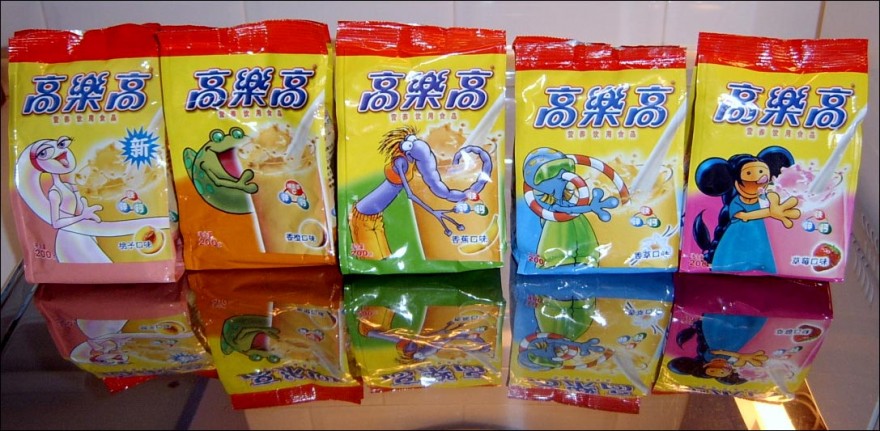China And The Ripple Effect On The Global Stage
What are the risks that could arise from the economic slowdown in China? How does China affect to other countries? Since starting its market reforms almost thirty years ago, China´s currently economy cannot be ignored.
Even if China has not left behind its centrally-planned economy yet, it has introduced some big measures to turn into a market-based country. Such efforts have resulted in a huge GDP growth and has lead the country to reach all the Millennium Development Goals by 2015.
Currently China has become the second largest economy in the world, but deals the first in the ranking by the quantity of goods and services produced. Moreover, according to the expectations published by the International Monetary Fund (IMF) for the present year, China will be responsible of the 18% of the entire World economic activity.
If to all this we add the expectations of its huge and richer population, its rapid change on production models and its consequent role on the World stage, we can conclude that the importance of China in the world has become a matter of vital importance in today’s global interregional balance.
But its big hits cannot make us forget that China still remains a developing country, and as we have mentioned before on our article “Ten Challenges on Chinese Future“, not only market reforms are incomplete, but also it has huge challenges ahead which must start to face.
After the financial crisis of 2008, neither the business community nor Governments have fully restored their confidence on the global economy. The doubts about the economic bonanza and the future role of Western countries have underestimated the increasing influence capacity of China in the international arena, while doubts have generated certain fear of a possible blowout of the country.

Trade effects are a game changer
The channels through which China affects the global economy can be summarized on:
- Decrease in trade and exchange rates
The Chinese leadership on trade makes hard not to affect global demand. China’s import volumes keep growing, but less than expected. This becomes a huge problem to those countries dependent on Chinese exports: raw materials are highly susceptible of the slowdown.

This effect creates a bidirectional paradox: China affects the world as much as the world affects China.
Although there has been much speculation about a possible future depreciation of the RMB in order to relaunch Chinese exports, in the team we believe that a currency war is currently off the table.
- Oil lower prices and commodities
The latest drops in oil prices are caused by the lack of confidence on Chinese economy. Its weakness has led to enormous imbalances on exporting countries of crude oil and raw materials: Russia, Brazil, OPEC countries and the U.S. still suffer for it. China’s falling demand has greatly contributed to the new situation and with it, deflation has knocked on the door.

However, according to the latest analysis made by the IMF, the negative effects are supplemented by growth in the purchasing power of the population. The Organization still thinks that lower prices on commodities have a positive effect on general economy.
- Monetary and inflation policies
The recent affordability of RMB should not make us forget that Chinese weakness can lead to a global new paradigm surrounded by deflation and debt. Once again, lower prices stimulate consumption, and this leads to boost demand, bigger sales and prosperity. Lower prices have become the stimulus of global economy.

- Cultural hegemony
Even if the Western countries have underestimated China’s rise, the consequences can already be seen. Although Cultural power follows to Economy and Politics, China already shows its increasing political and cultural power on international arena: mandarin language and Chinese diplomacy have become a key to Government policy.

Its empowerment is more visible in East Asia, but runs fast around the rest of the world. We have started living in a China-centrism, in which global power gravitates around Chinese policy.
Nowadays, confidence in the global economy is vital for prosperity but unpredictable. The ripple effect that is lived in the global area, is greater than ever.
Understand this huge spider web which is China, seize opportunities to launch your business and boost your sales, are our goals.
In search of a Digital Marketing Consultancy? Interested on Chinese Ecommerce?
Visit us on 2 Open. We would love to hear from you!
Nutrexpa Experience in China: Business Tips
Nutrexpa was not only one of the first Western companies operating in China in the early eighties, but also a perfect example to explain the hurdles that any company faces in its landing to China.
Nutrexpa paved the way and others followed its footsteps. Its story is an example of tenacity and adaptability to a country that was not what it is today. Many of its experiences are likely to be applied to any company that considers China.
Keep reading!
Find the proper battle buddy. Be aware of market dynamics!
In the early eighties, it was impossible to land in the country without the assistance of a local partner and the Chinese authorities.
After over three years of negotiations between the company and the local authorities, the emergence of a suitable local partner –Li Bank-, contributed to the establishment of an alliance, and the subsequent creation of a Joint-Venture.
A tip! This first stage requires flexibility and guangxi. Negotiations with local authorities and the Chinese bureaucracy are not always easy -although is improving every day! -, and finding a proper partner can be difficult.
Do not lose your patience and keep working on building a suitable partnership. It´s worthy!

Sometimes in China, your product will turn into another
After inaugurating in 1990 its factory in Tianjin, Nutrexpa would focus on prospecting of its target market, and also in adaptive demands that China demanded of its product. There, Nutrexpa started producing soluble and powder cocoa drinks.
Nutrexpa had all the ballots to fail on its arrival in China
The biggest pitfall were the eating habits: no milk or cocoa were consumed in China.
How to overcome such a hurdle?
– First, the company took advantage of an extrinsic condition: in the early nineties, the Chinese Government launched a powerful awareness campaign about the importance of milk intake in children. So, stay tuned! Opportunities come and leave!
–Second, Nutrexpa made a big effort to get a closer approach to the taste of their potential customers. To do so, they devised some specific tastes to their products: strawberry, banana and vanilla. Adapt!
–Third, Nutrexpa invested huge amounts on nationwide coverage advertising campaigns –around € 10/12 million per year- , especially on television. This effort managed to position the brand as a product fully recognized in big cities but also among Tier 2 and Tier 3. Now replace TV and imagine the endless possibilities of digital marketing on advertising nowadays!
–And last but not least, the company decided to create a Chinese distinctive brand. It dropped its popular brand name –Cola Cao– to become GaoLeGao, whose literal meaning is tall and jolly.
Choosing GaoLeGao was a marketing tool by itself: the election of positive attributes in a children’s product, makes easier its choice to the detriment of other similar products.
Years later, the company would challenge itself over again with the introduction of Nocilla… in a country in which bread was not consumed.
An another tip! Adapt your products and services to the market. If the name of your brand, colors or labeling are inadequate, change them!
Also never forget registering the name of your brand in Chinese and in your own language! Product customization, labelling and marketing are crucial!

success is sometimes highly unexpected
Despite being widely accepted, the product never reached another audience than children. Neither GaoLeGao nor Nocilla were the most successful.
Surprisingly, Nutrexpa discovered that its Star-product in China was… Phoskitos! Its commercialization never fit in with major purposes of Nutrexpa; after almost thirty years, they took the decision of selling the company and leave China.

What can we learn from the experience of Nutrexpa in China?
When Nutrexpa came to China, there were no previous examples. Fortunately, we are in 2016 and your company has the advantage of landing in the country in the hands of an agency specialized in Chinese business development.
Visit us and boost your sales in this giant we call China!
2Open on Spanish radio: Business in China?
Recently, we were invited to a local Spanish radio program called “Onda Cero” in Cáceres City. Vicente Pozas, the host of the show, asked some interesting questions to our colleague David González regarding Digital Business in China. For a lot of people in Europe, China is a far away land with a different culture, different people, and different ways to make business. People are getting interested in China, it has had a huge economical growth in the past few years and interest of foreigners has grown accordingly.
The talk mainly focused on China’s development in certain technological areas, the business opportunities it offers, and the considerations that have to be taken into account if one should intent to do business in China. David González talked about the differences in population of major cities in both countries and the way e-commerce in China has surpassed any other country in the world. He also stressed the way the Chinese middle-class people have gained more purchasing power and how all of this can be translated into a broader potential market for any business.

After throwing out some interesting figures about China, he talked about failure and success cases that foreign companies have had when trying to enter the Chinese market, the limitations and the room for mistakes that exists in the country, and the complexity of making business with a Chinese businessperson.
Although the talk focused mainly on China and the way they make business, David got the opportunity to talk about 2Open, our business values, and the way we carry out every project with passion and commitment. The complexity and the obstacles that a business in China could present and how a company like 2Open can make the whole process a lot simpler and successful.
Here is the audio of the interview with David González on the Spanish radio show “Onda Cero”, sadly the audio file is only available in Spanish, but if you have a particular interest on it please leave a comment and we will post an English translation of it.
This article was edited by Andres Arroyo Olson from 2Open.




